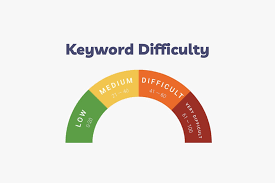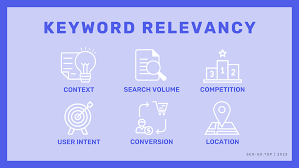Keyword research in 2025 is the foundation of every successful SEO strategy. It’s how you discover what your audience is searching for, how competitive those terms are, and where you should focus your content.
Table of Contents
In 2025, keyword research has evolved, but the fundamentals remain strong—and you don’t need to spend a dime to get started.
This guide will teach you how to do keyword research step-by-step using free tools, helping you rank higher on Google, grow organic traffic, and understand your niche better.

1. What Is Keyword Research?
Keyword research is the process of identifying words and phrases people type into search engines, then using those keywords in your content so you can rank higher in search results.
It helps you:
- Find what your target audience is searching for
- Identify opportunities to rank for less competitive keywords
- Create content that drives traffic, leads, and sales

2. Why Keyword Research Still Matters in 2025
Even with AI, voice search, and evolving algorithms, keyword research remains critical for SEO success.
- Google still relies heavily on keyword signals.
- Quality content that aligns with search intent is more likely to rank.
- Understanding keywords helps optimize both content and user experience.
Whether you’re a blogger, digital marketer, or small business owner—keyword research in 2025 remains a non-negotiable SEO step.

3. Types of Keywords (With Examples)
Understanding the types of keywords helps you target the right terms:
Short-Tail Keywords:
- Example: “shoes”
- High search volume, high competition
Long-Tail Keywords:
- Example: “best running shoes for flat feet”
- Lower search volume, low competition, highly targeted
Branded Keywords:
- Example: “Nike running shoes”
Informational Keywords:
- Example: “how to tie running shoes”
Commercial/Transactional Keywords:
- Example: “buy Adidas Ultraboost online”

4. The Keyword Research Process (Step-by-Step)
Step 1: Brainstorm Topics
Think of broad categories related to your niche. For example:
- Fitness: home workouts, weight loss
- Tech: AI tools, productivity apps
Step 2: Use Free Tools to Expand Keyword Ideas
We’ll cover tools in the next section, but aim to generate:
- Seed keywords
- Related searches
- Questions users ask
Step 3: Analyze Each Keyword
Look for:
- Search volume
- Competition/difficulty
- Relevance to your audience
- SERP analysis (who’s already ranking)
Step 4: Group & Organize Keywords
Group similar keywords under themes. This helps with:
- Creating focused content
- Avoiding keyword cannibalization
- Mapping keywords to specific pages

5. Best Free Keyword Research Tools in 2025
Here are the best tools that cost nothing but offer great insight:
1. Google Keyword Planner
- Shows search volume, competition
- Great for getting initial data
- Best for PPC but still useful for SEO
2. Google Search & Autocomplete
- Type in your seed keyword and note the autosuggestions
- Scroll to “related searches” at the bottom
3. Answer the Public
- Visualizes questions people ask
- Great for content creation
- Limit: Few free searches per day
4. Ubersuggest (Free Plan)
- Keyword ideas, volume, difficulty
- Offers limited daily searches for free
5. Also Asked.com
- See how questions branch off of each other
- Helps structure blog posts and FAQs
6. Google Trends
- Understand keyword popularity over time
- Great for seasonal content
7. Keyword Surfer (Chrome Extension)
- Shows keyword volume right in Google SERPs
- Instant metrics without switching tools

6. How to Analyze Keyword Difficulty
Free tools like Ubersuggest and Moz give a Keyword Difficulty (KD) score from 0 to 100.
- 0–30: Easy (great for beginners)
- 31–60: Medium difficulty
- 61+: Competitive (need strong content & backlinks)
Pro tip: Look at the top 10 results on Google. If they’re mostly high-authority domains, it’ll be tough to rank. If smaller blogs rank, you’ve got a shot!

7. Understanding Search Intent
Every keyword has an intent behind it:
| Intent Type | Example Keyword | Best Content Type |
|---|---|---|
| Informational | “how to lose weight fast” | Blog post, guide |
| Navigational | “Facebook login” | Home or login page |
| Commercial | “best phones under 30,000 INR” | Product review, listicle |
| Transactional | “buy iPhone 15 Pro online” | Product page, eCommerce |
Match your content type to the search intent to rank better.

8. How to Choose the Right Keywords
Here’s a checklist:
Relevant to your audience
Medium to high search volume
Low to medium difficulty (especially if your site is new)
Aligns with your business goal
Matches content format you’re producing

9. Keyword Research for Specific Scenarios
For Blog Posts:
- Target long-tail, informational keywords
- Include questions (“how to”, “what is”)
- Structure content with H2 and H3 using related keywords
For Ecommerce:
- Use transactional keywords (“buy”, “discount”, “free shipping”)
- Optimize product titles, meta tags, and image alt text
For Local SEO:
- Use location-based keywords (“best dentist in Pune”)
- Claim your Google My Business listing
- Include NAP (name, address, phone) consistency

10. Bonus: Keyword Mapping Tips
Keyword mapping means assigning keywords to specific pages to avoid overlap.
Tips:
- One focus keyword per page
- Use supporting keywords as subtopics
- Create a spreadsheet for content planning
- Update older content when keywords change in popularity

11. Common Mistakes to Avoid
Targeting keywords with high volume but low relevance
Ignoring search intent
Stuffing keywords unnaturally
Using keywords without competition analysis
Not tracking keyword performance over time
12. Final Thoughts
Keyword research in 2025 is not about tricking Google—it’s about understanding your audience and serving them what they’re looking for.
The good news? You don’t need to spend money to do this well. With the free tools and strategies shared in this guide, you can uncover the keywords your audience is searching for and use them to grow your traffic and online presence.
Quick Recap:
- Start with brainstorming
- Use free tools like Google Autocomplete and Ubersuggest
- Focus on long-tail keywords
- Understand the intent behind every keyword
- Organize, assign, and track your keywords
- Create content that’s genuinely helpful
